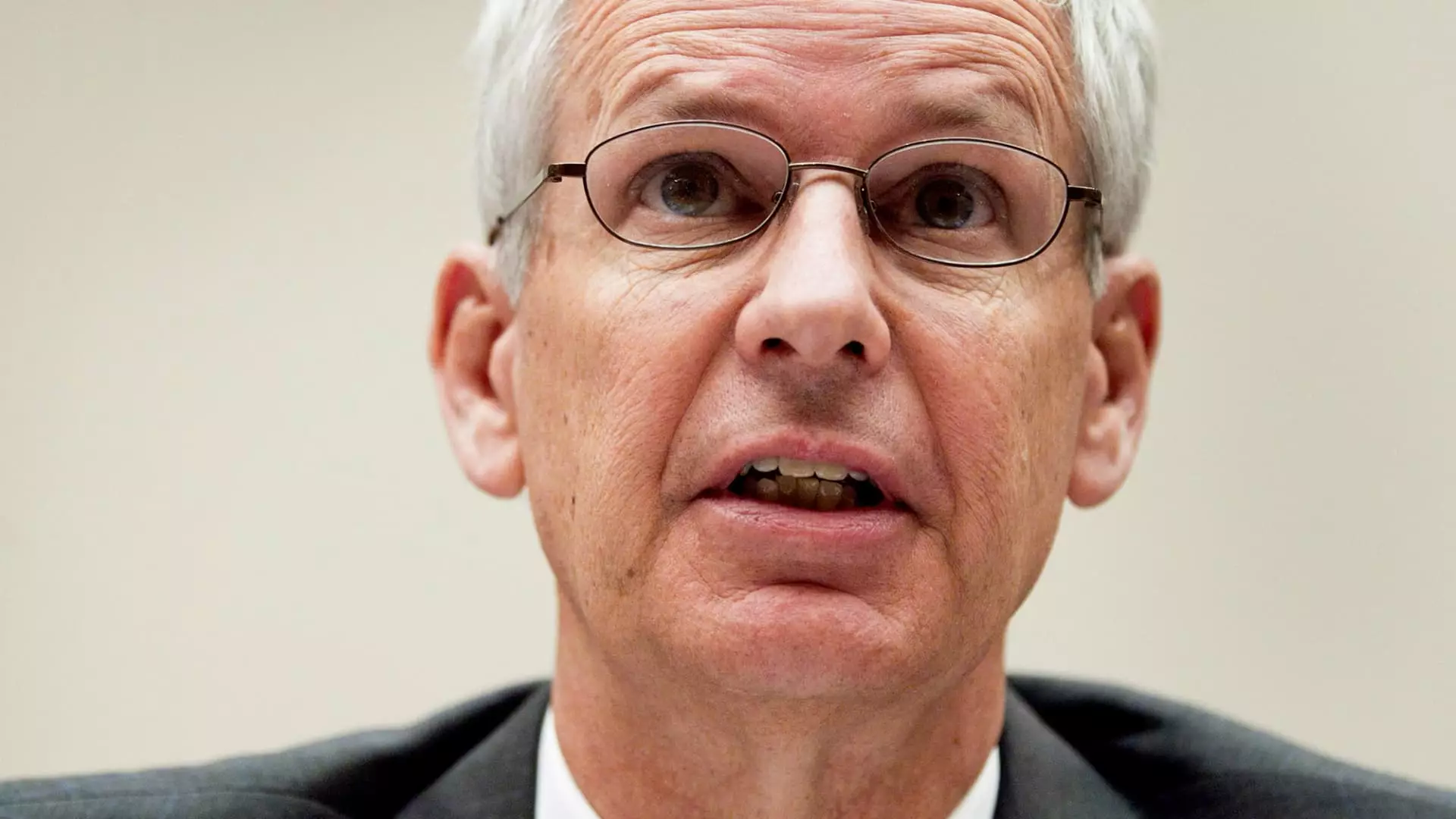Dish Network has long been a recognizable name in the pay-TV industry, but recent developments suggest a troubling trend that may mark the end of its significant influence in the market. The company’s struggle to pivot in a rapidly evolving media landscape mirrors the uninspiring conclusion of the iconic sitcom “Seinfeld,” from which its strategy borrowed inspiration. In initiating this comparison in 2011, cofounder Charlie Ergen suggested that just like the show’s multiple plot threads that only seemed to converge at the finale, Dish’s own direction would one day become clear. However, as per its recent actions, it appears the resolution was less triumphant than anticipated.
EchoStar, the parent company of Dish, has recently sold the pay-TV provider to DirecTV for a mere nominal price of $1, while taking on a staggering $9.75 billion of associated debt. This dubious outcome signifies more than just a corporate transaction—it’s a reflection of a fundamentally flawed strategy that failed to adapt to changing consumer habits and market dynamics. With EchoStar shares plummeting by over 11% following this announcement, the reality of Dish’s business model being outdated is becoming increasingly evident.
As the media consumption landscape undergoes seismic shifts toward streaming services, traditional pay-TV providers like Dish are struggling to keep pace. In recent years, millions of subscribers have abandoned their traditional cable packages in favor of platforms that offer flexibility, affordability, and a wider variety of content. Substitute providers such as Comcast and Charter are encroaching upon Dish’s once-secure subscriber base, which has seen combined losses of 63% since 2016. The changing consumer preference is undeniable, and EchoStar CEO Hamid Akhavan succinctly encapsulated this reality by stating that “the content-distribution industry has been on the decline.”
The spectacular rise of on-demand streaming platforms has inevitably rendered satellite television increasingly obsolete. Historically, Dish Network thrived in an era when consumers were tethered more closely to cable providers. However, as societal norms shift toward customizable viewing experiences, Dish’s inability to effectively address these preferences has caused a significant erosion of its market standing. To compound these challenges, its attempts to diversify services through wireless offerings have proven unsuccessful.
Failed Ambitions and Increasing Debt
Dish Network’s ambitious plans to transform into a nationwide wireless carrier have ultimately resulted in a misalignment of resources. The acquisition of Boost Mobile in 2019 for $1.4 billion provided a glimmer of hope for this endeavor, yet the company has struggled to attract the investment necessary to both sustain its declining pay-TV business and build a competitive wireless infrastructure. As millions of subscribers continue to leave the fold, the dwindling cash flow from satellite TV has left Dish in a precarious position, unable to nourish its ambitions adequately.
Management distractions have also been a consistent issue. With ambitions divided between different avenues—ranging from pay-TV to wireless capabilities—Dish has lacked the focus required to implement a coherent business strategy. According to Akhavan, this scattered approach hindered dish’s potential for growth, illustrating the company’s struggle in navigating a challenging market landscape.
The struggles of Dish Network ought to serve as a cautionary tale for companies steeped in traditional business models in the face of disruptive innovations. The analogy with “Seinfeld” resonates more profoundly than its surface-level implications suggest; both storylines are marked by a promise that ultimately fizzles out into disappointment. Just like the show’s finale that failed to satisfy its devoted audience, Dish Network’s strategic ambitions have culminated in an outcome that leaves much to be desired.
In retrospect, the real challenge for Dish was identifying and embracing a clear path that capitalized on modern viewing preferences while ensuring sustainability in a vastly different environment. The stakes are high in industries that are evolving faster than traditional firms can adapt, and the narrative that unfolds around Dish is a direct reflection of those risks. As the company enters this new chapter under DirecTV’s banner, only time will tell whether it can reconcile its fiscal challenges and find a renewed sense of direction, or if it will continue to fade into obscurity—a fate many hoped would not parallel the curtain call of one of television’s most beloved sitcoms.

